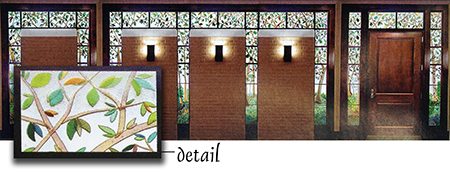14 Feb Celebrating Love: Valentine’s Week at the Folk School
It’s Valentine’s Day here at the Folk School. I caught up with some friends and classmates this week to hear more about what folks are doing to mark the occasion.
Karen and Paul
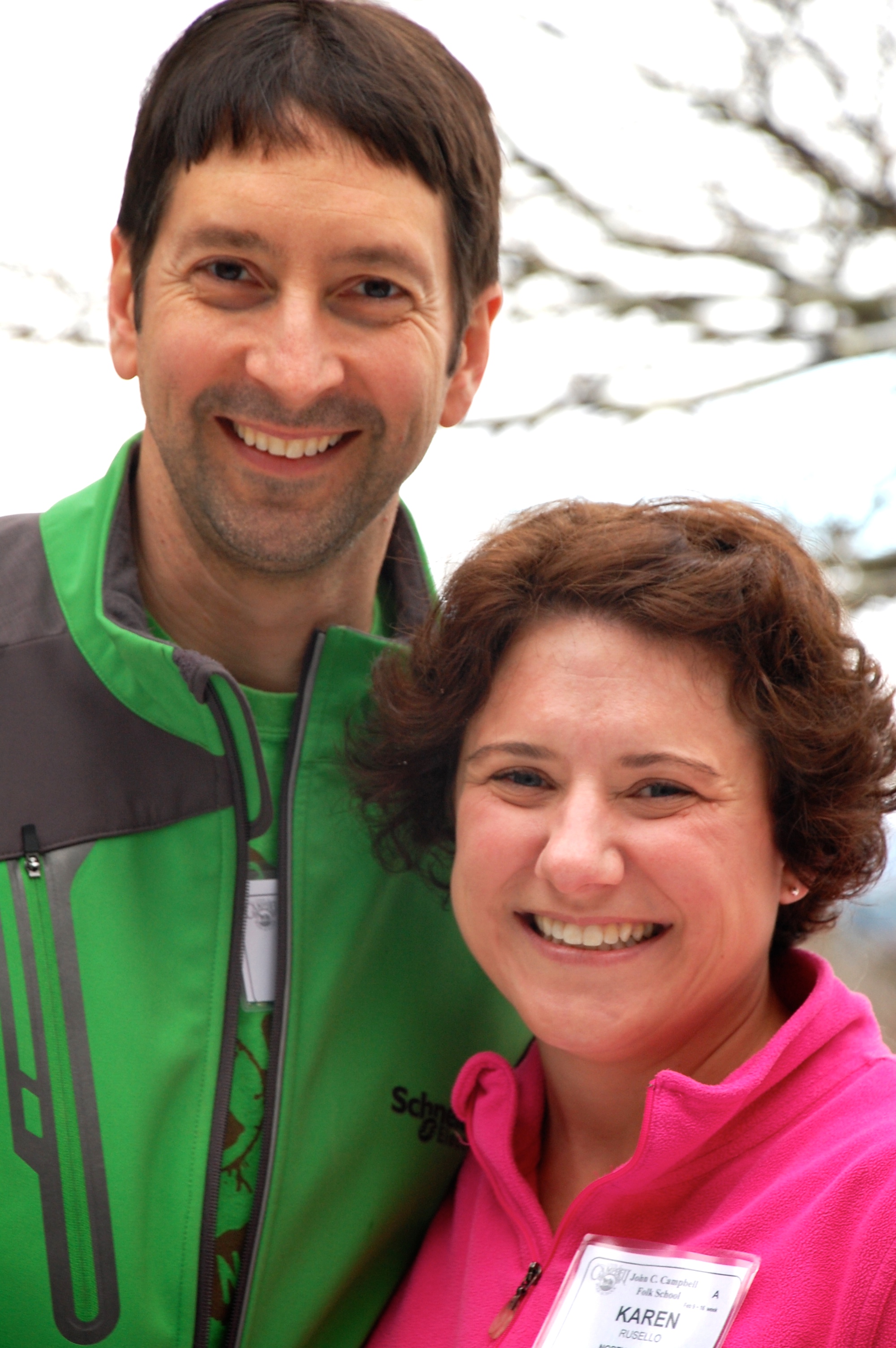 Wood turners and spinners make good sweethearts.[/caption]
Wood turners and spinners make good sweethearts.[/caption]
Karen is a second-time Folk School student who brought her husband Paul here for the first time. They did not pick this week intentionally for Valentine’s Day but are happy to be here to celebrate with the Folk School community. Karen and I are classmates in Martha Owen’s Sheep to Shawl spinning/dyeing class together, while Paul is over in the Woodturning class with Phil Colson.
Karen: I loved it here and knew he would love it too. So we looked through the catalog and found a week where we could be here and work on stuff together.
Leah: So between the two of you, who is craftier?
Paul: She is.
Karen: I might be more artistic, but Paul’s an engineer. He is into figuring out how stuff works and making beautiful things that function well.
Leah: What are you learning this week that you will take home with you?
Paul: In wood turning, you have to concentrate hard for short amounts of time and then stand back and watch to see the potential emerge. I think that’s something I am taking away from this week that applies in our life.
Karen: (laughs) So you concentrate on me for short periods of time??
Paul: (laughs) Yes – and then all the potential emerges.
Karen: I think the way we are spending time with each other this week is really reflective of how we want our lives to be, so it’s a good way to practice what to prioritize.
Leah: That’s beautiful you guys. However, I actually meant – what are you literally taking home for each other?!
Paul: I am making some spinning tools, and a bunch of stuff for our home. And I am working on a special thing that I haven’t told her about yet.
Karen: I am learning a bunch of techniques. I don’t know how much knitting I am going to get done, but eventually these techniques will turn into sweaters. Or socks.




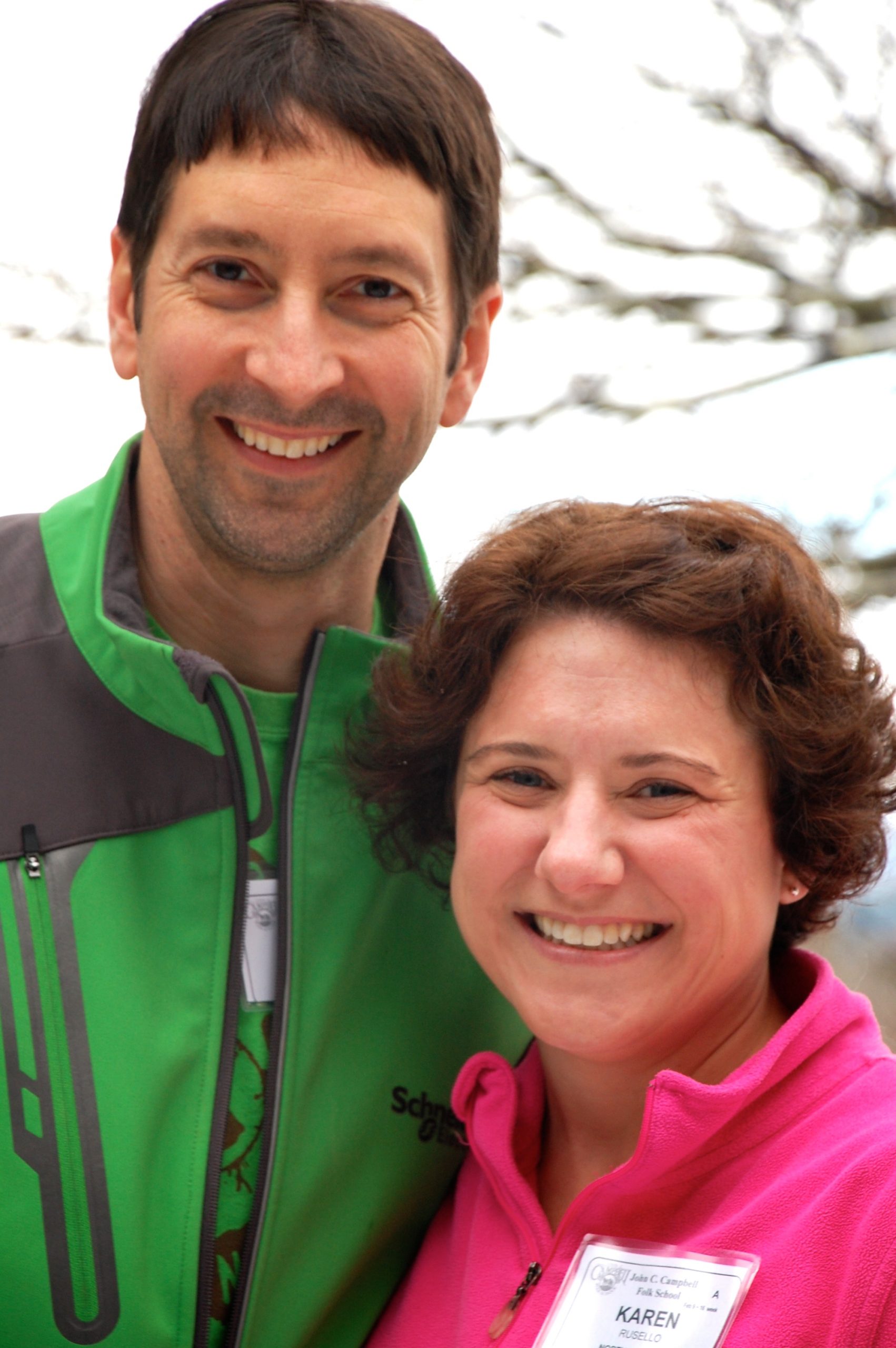
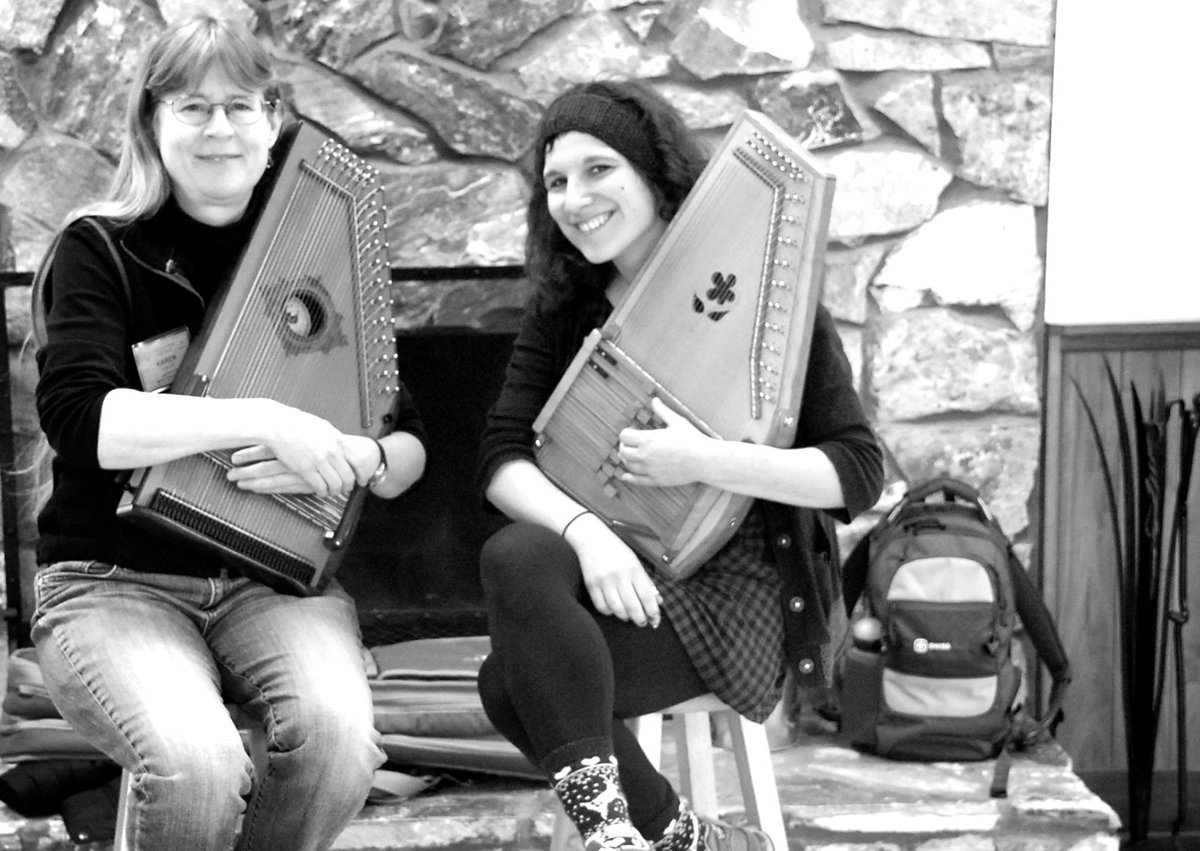
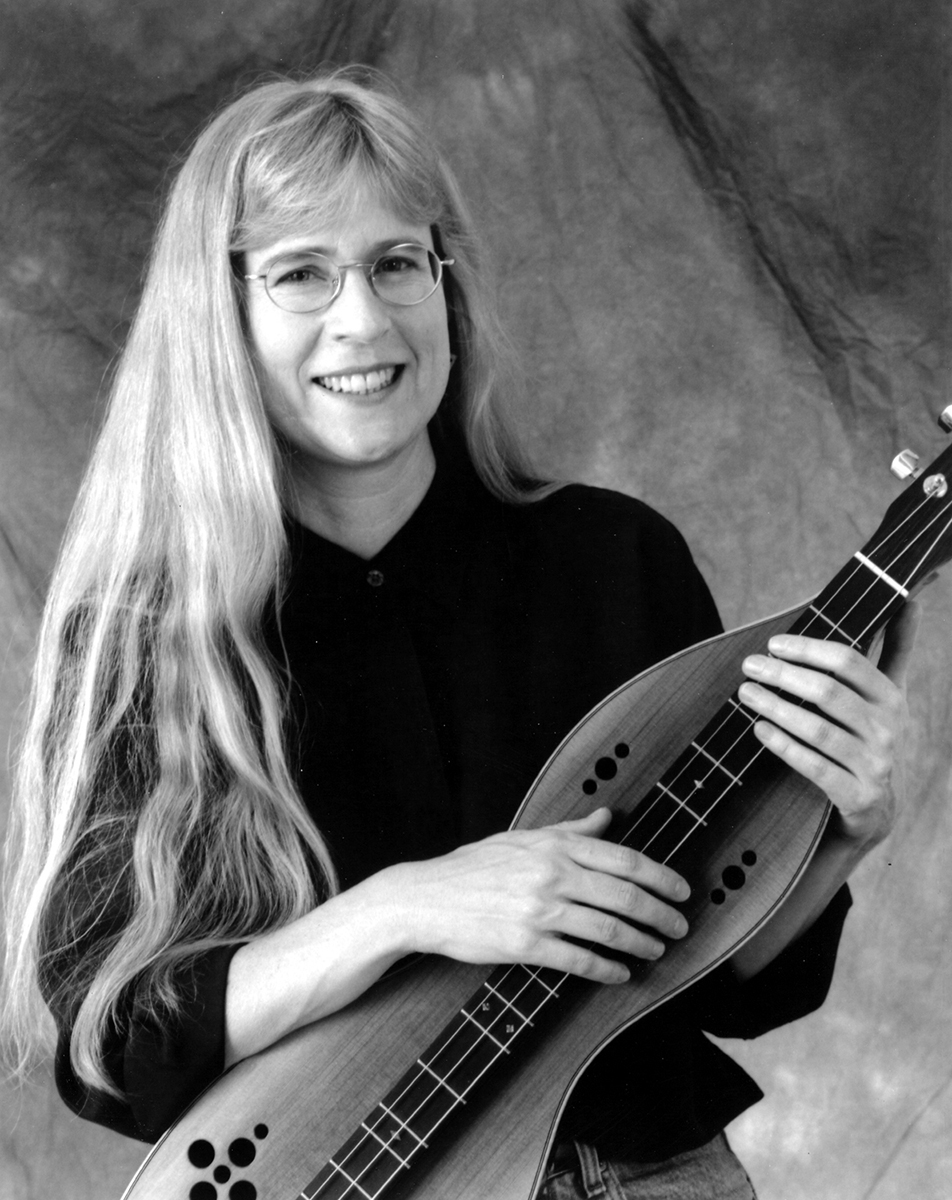
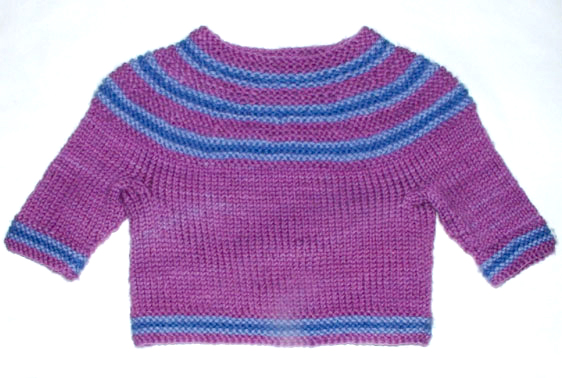
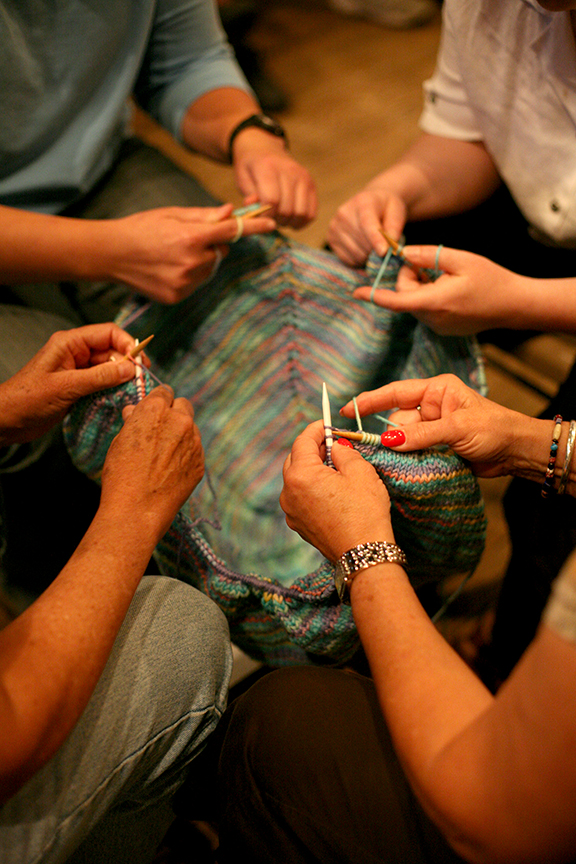
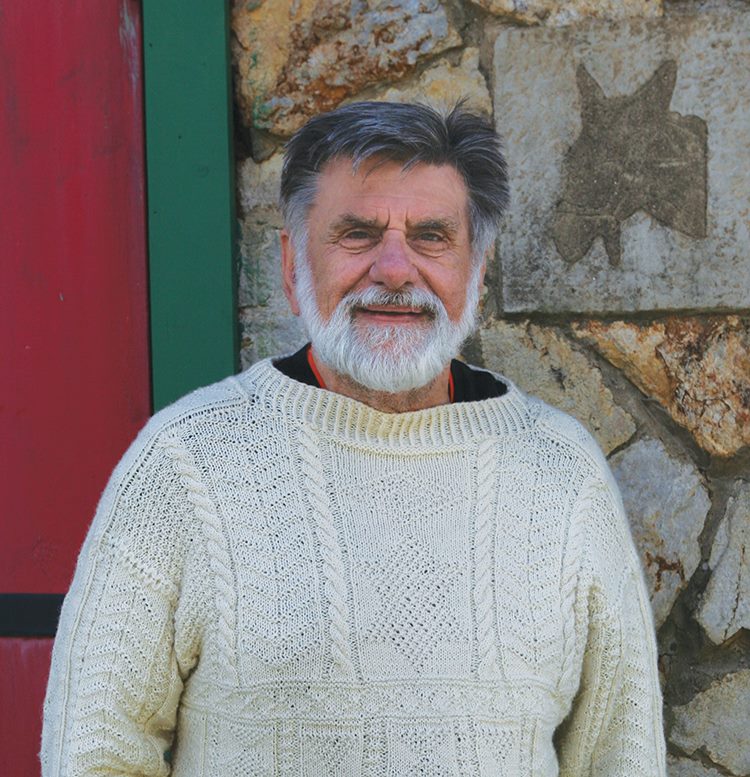
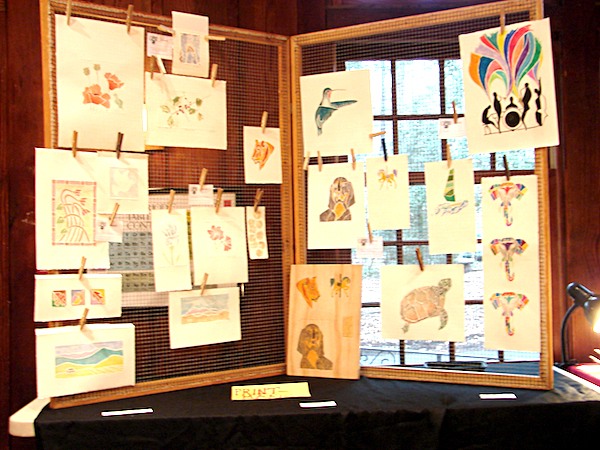
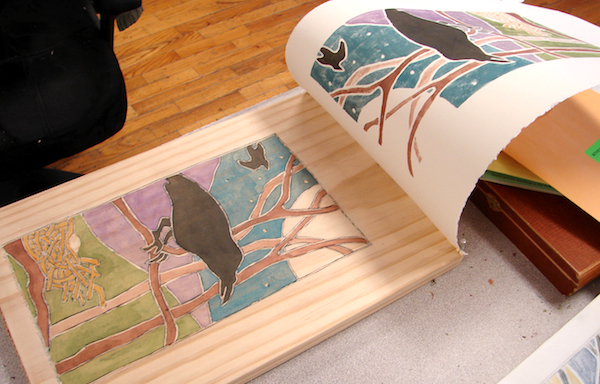


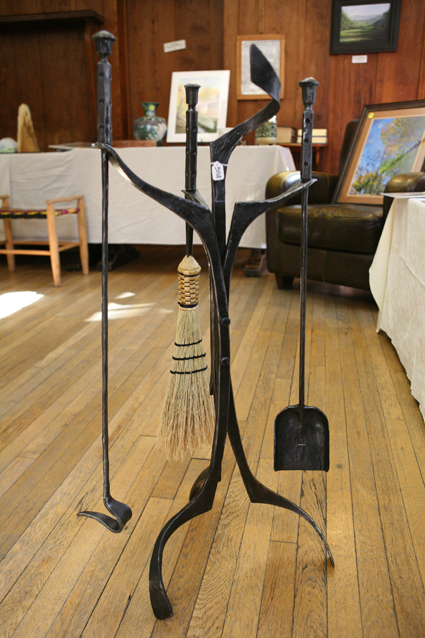
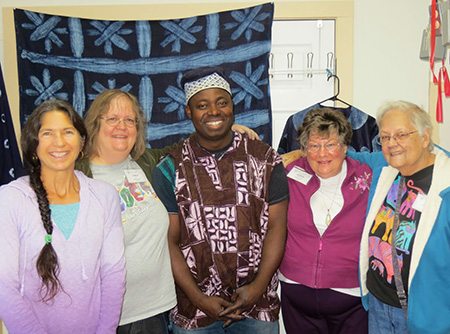
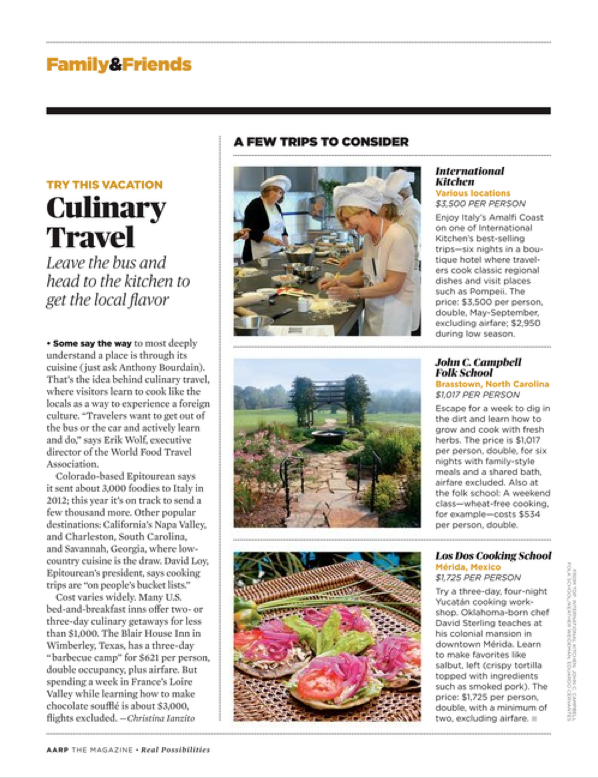
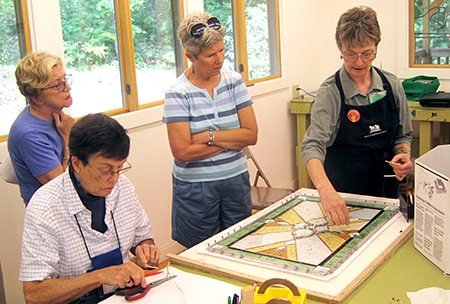
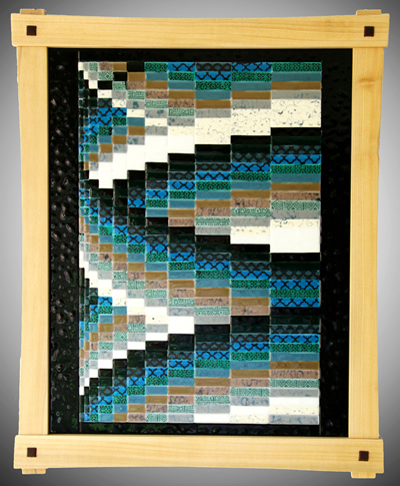 Bargello-inspired piece[/caption]
Bargello-inspired piece[/caption]
 An example of Powder Painting achieving a watercolor look by Karen Reed.[/caption]
An example of Powder Painting achieving a watercolor look by Karen Reed.[/caption]
